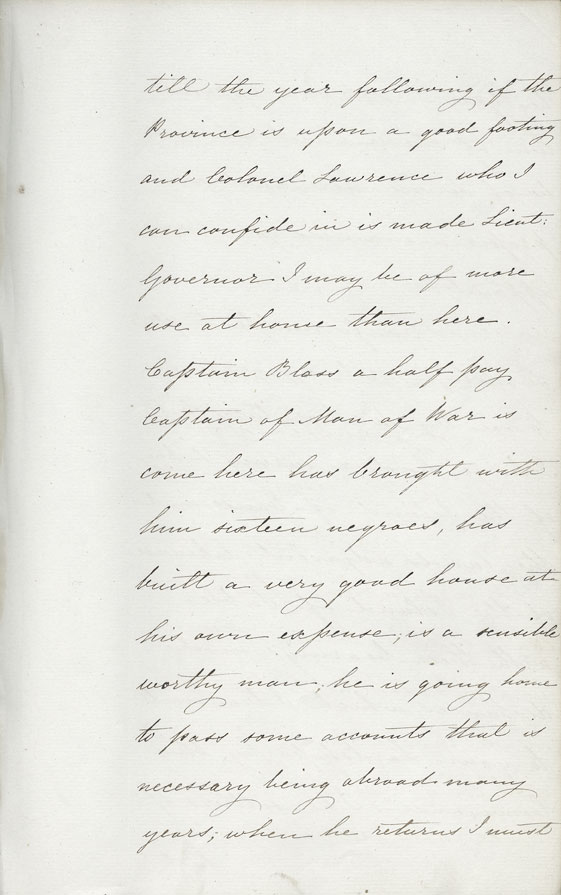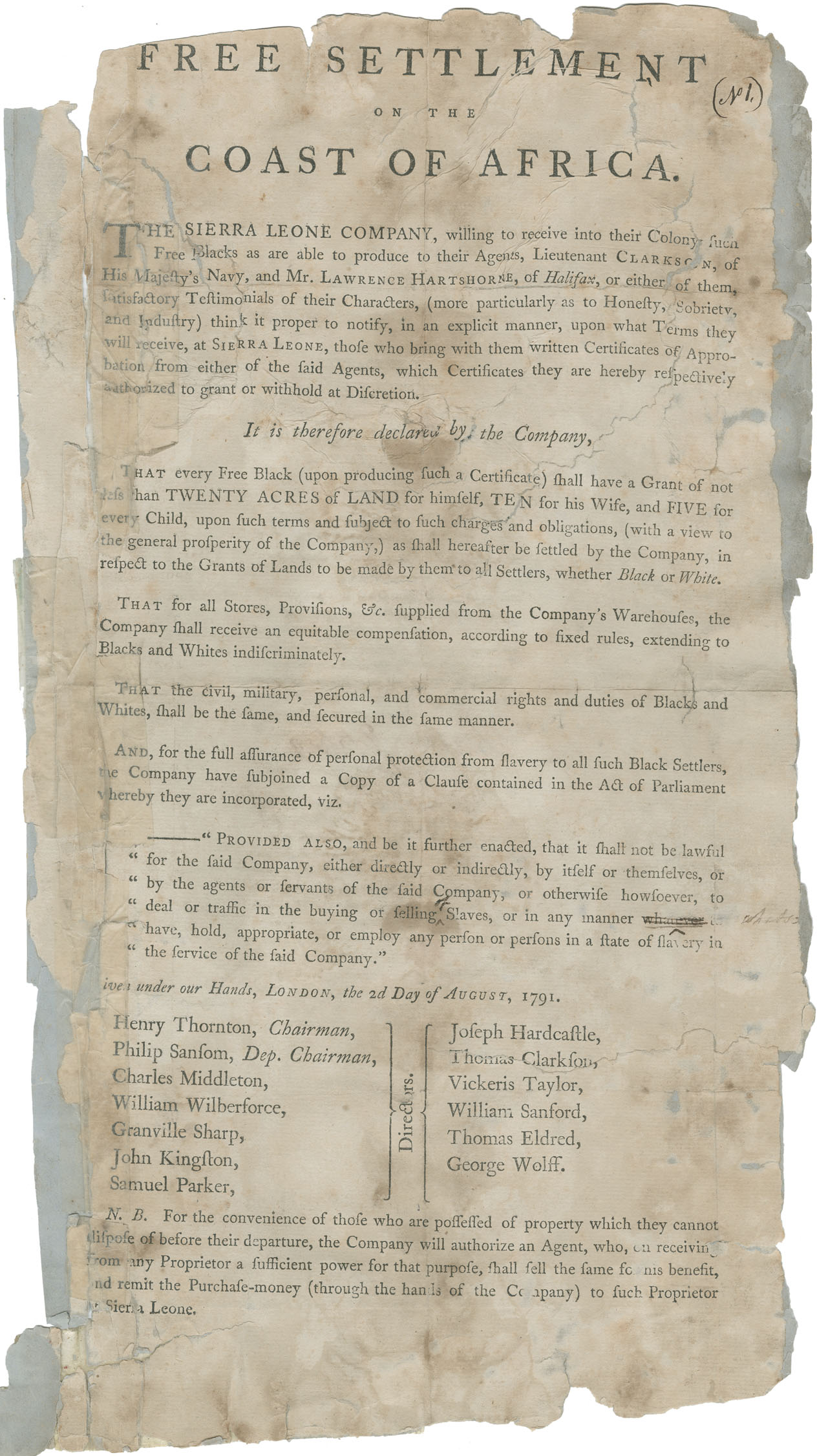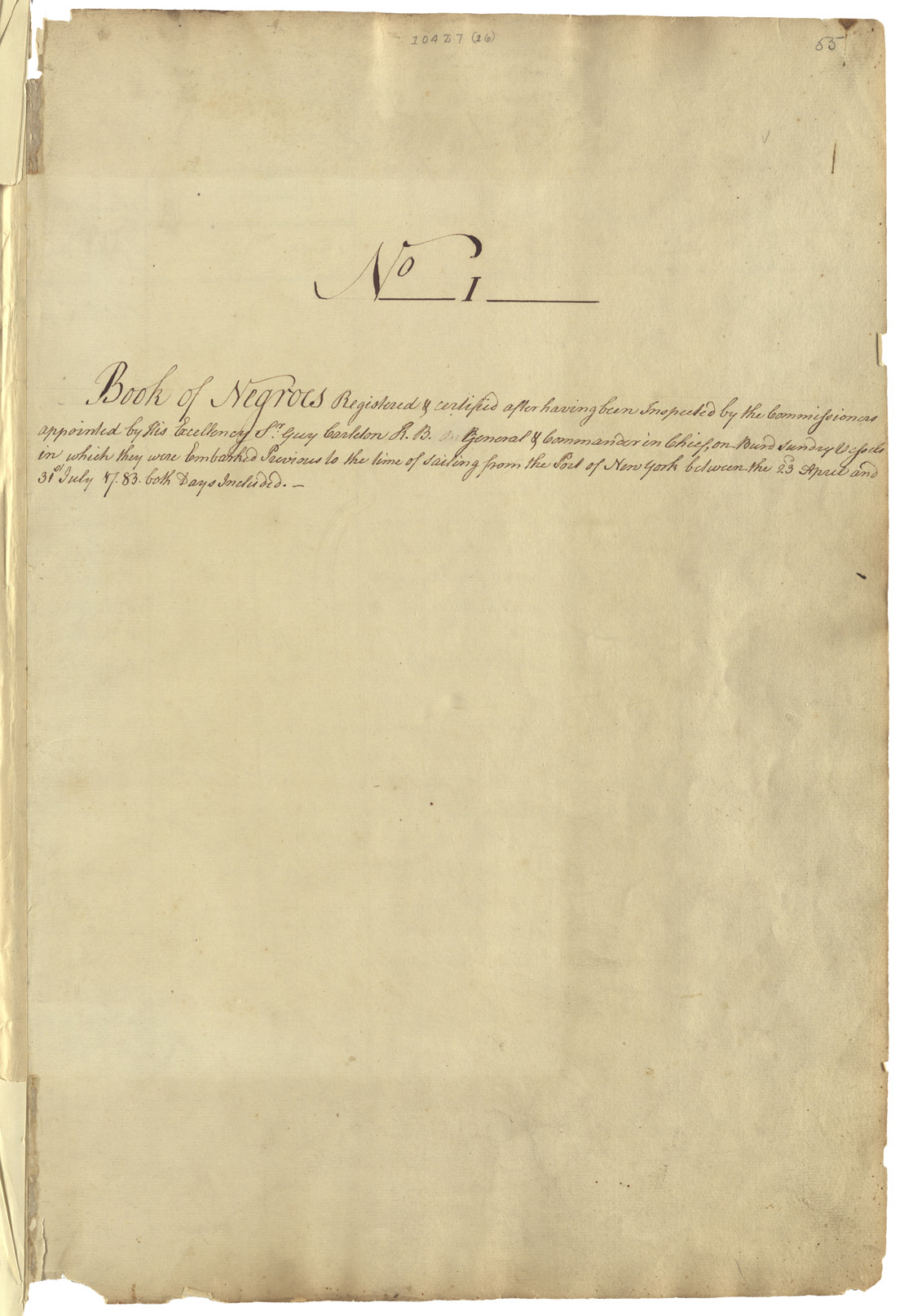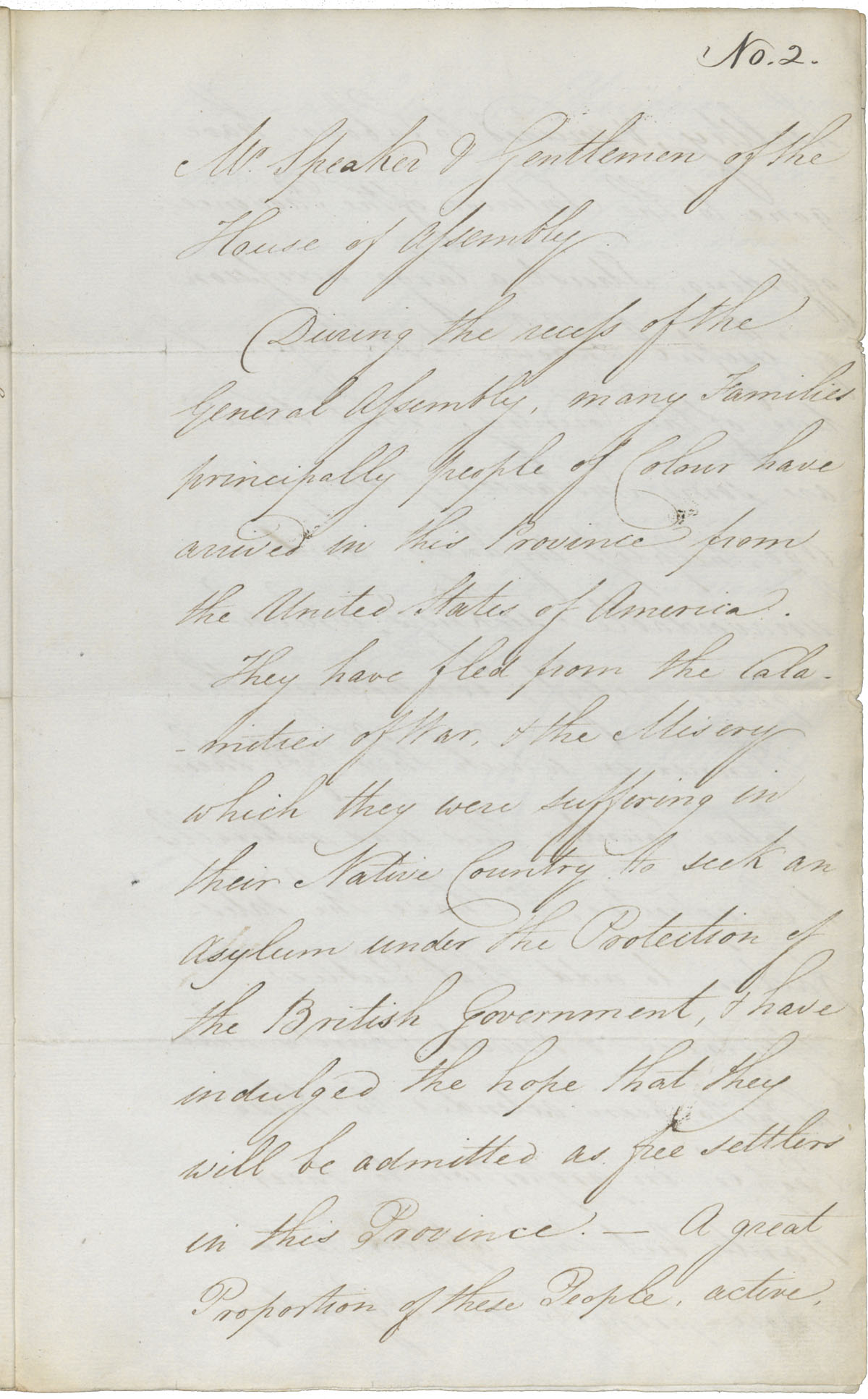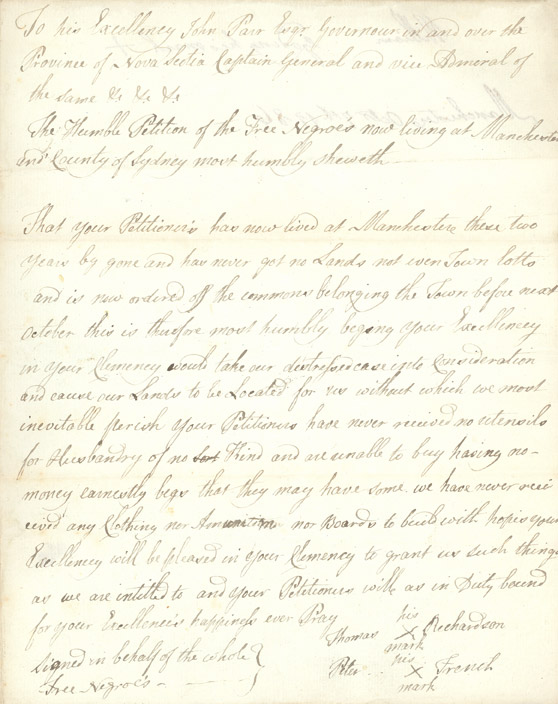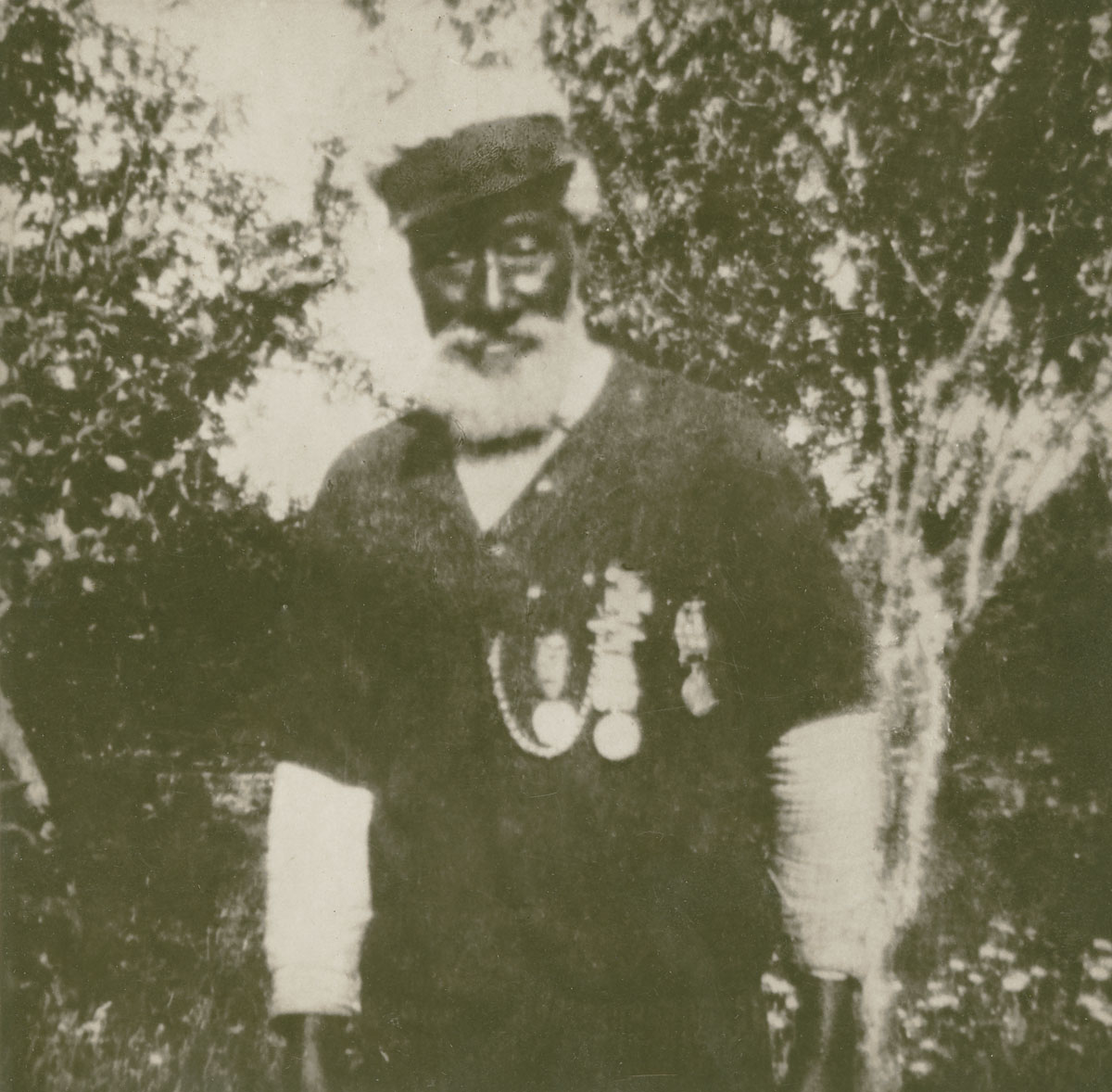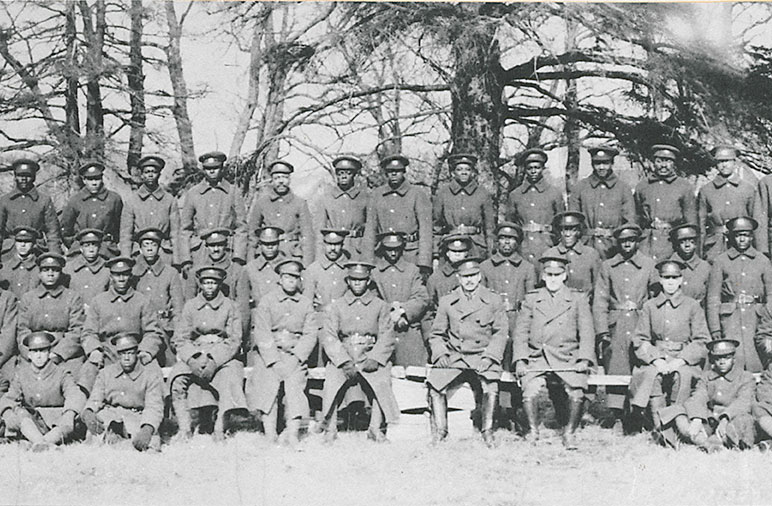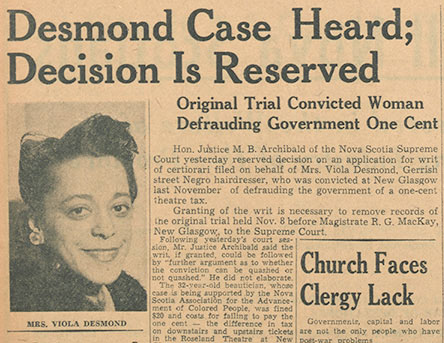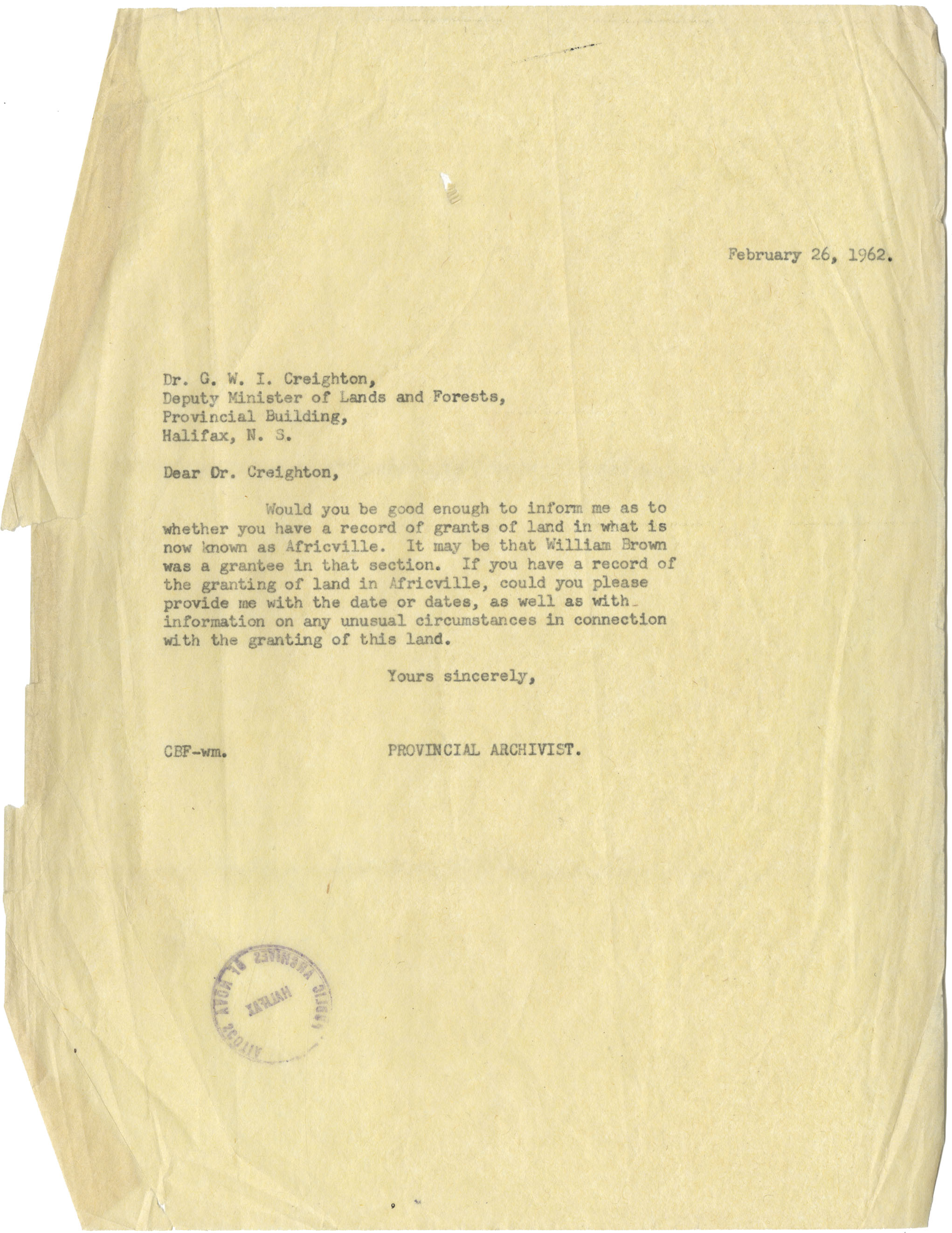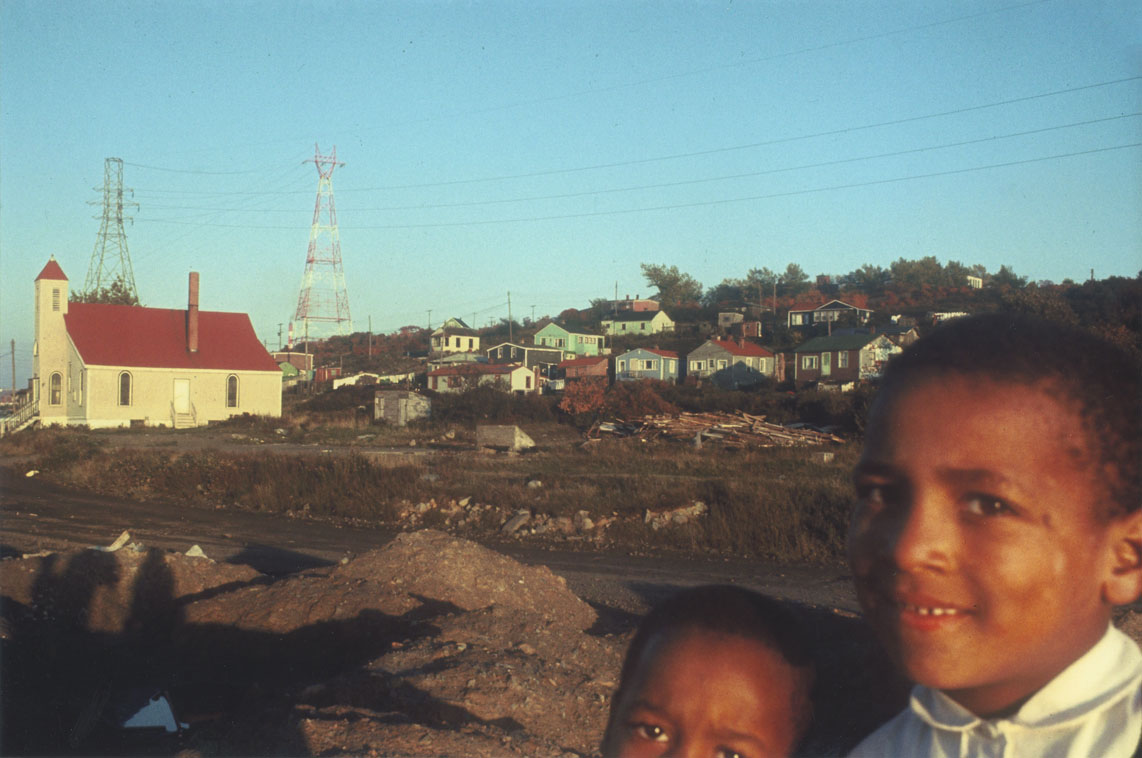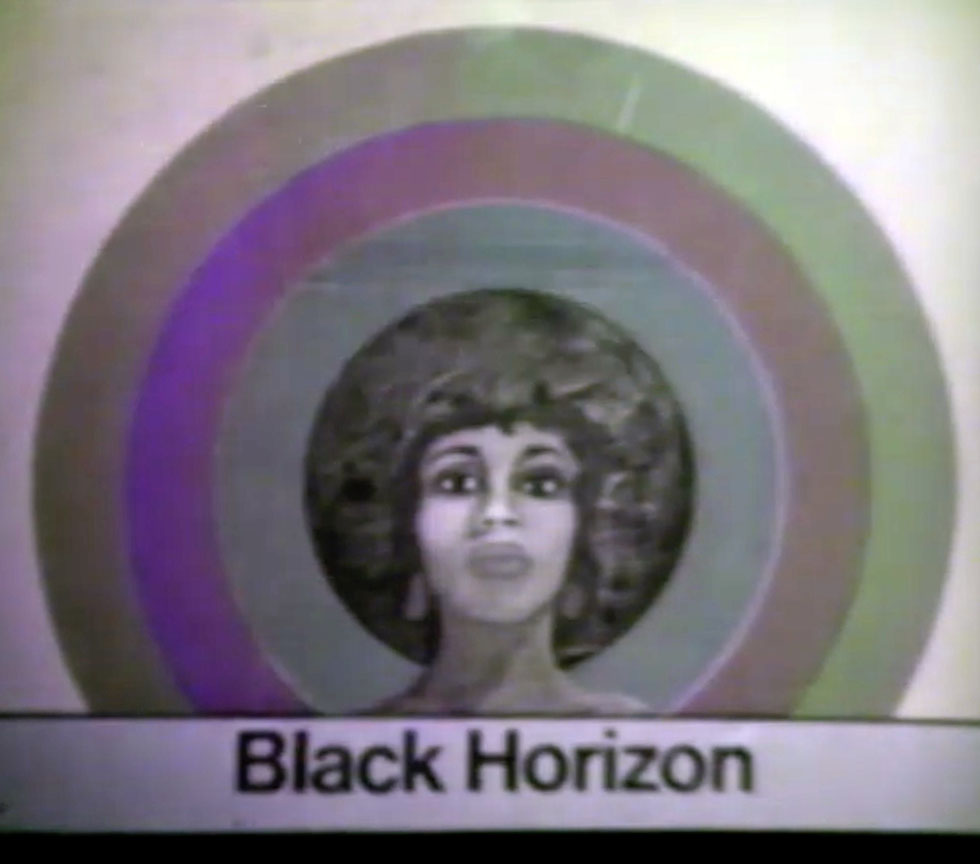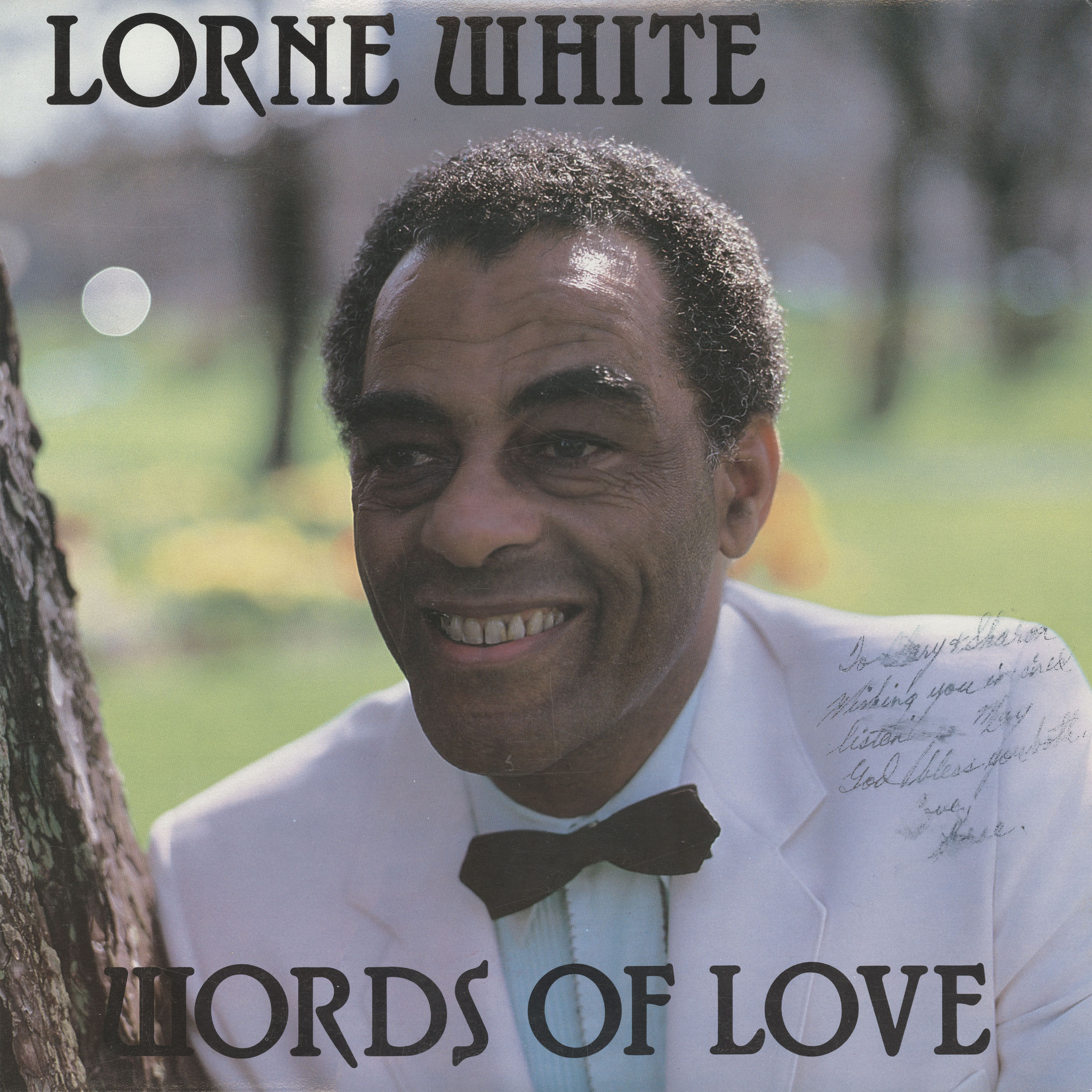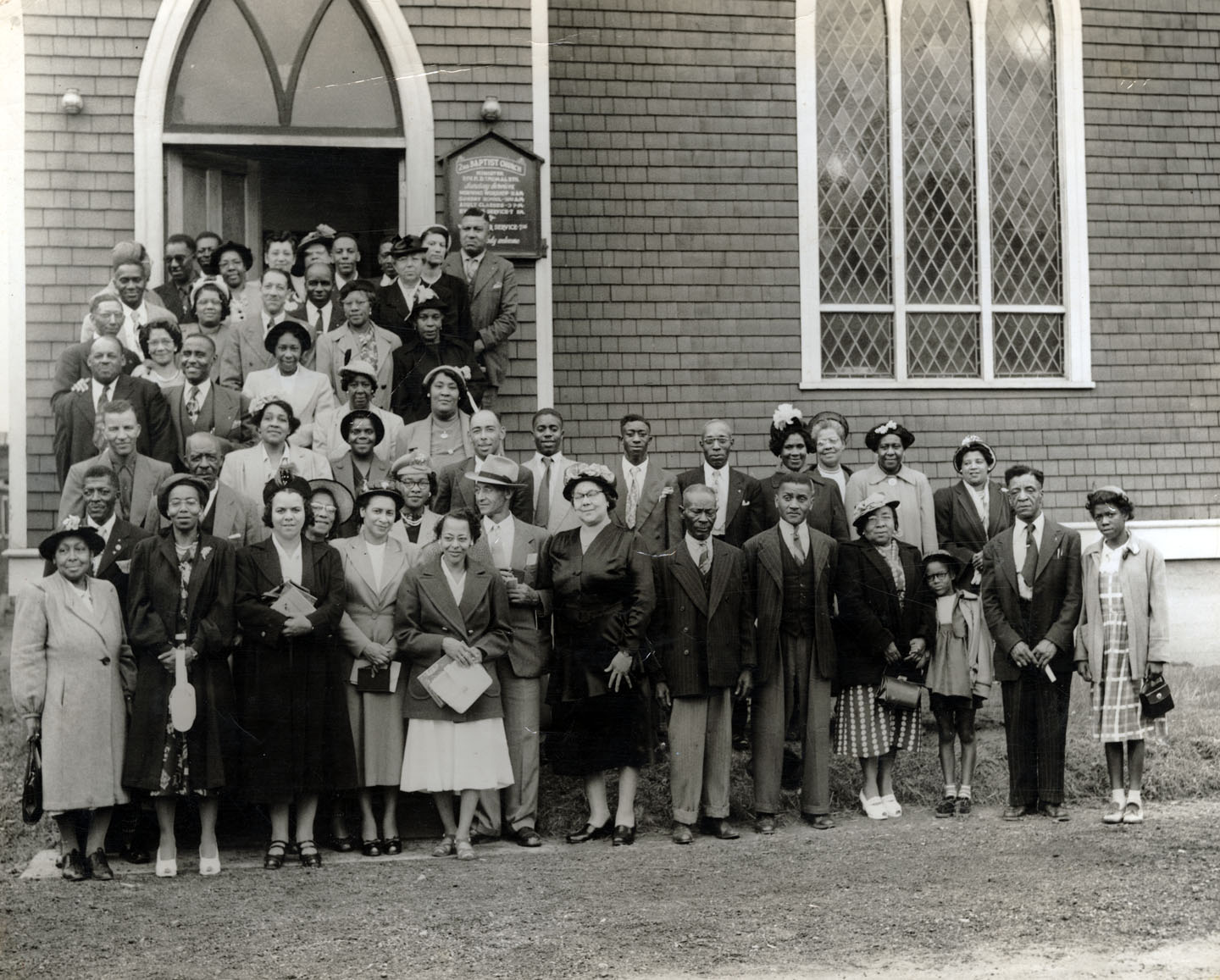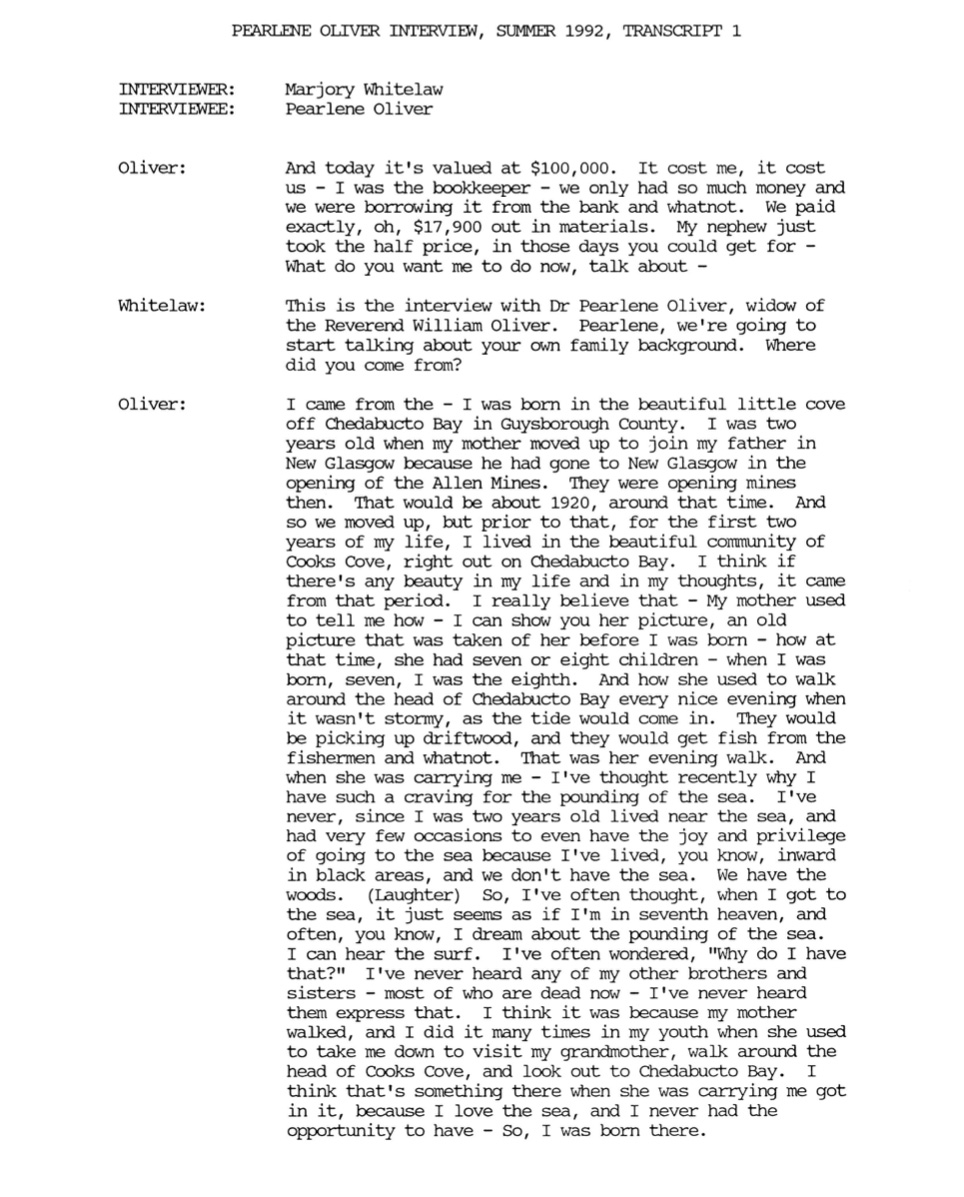Nova Scotia Archives
Looking Back, Moving Forward: Documenting the Heritage of African Nova Scotians
Archival Holdings
Documentation relating to people of African descent living in Nova Scotia can be found broadly dispersed throughout the Nova Scotia Archives holdings, in all formats — textual records, photographs, maps, documentary art, sound recordings, moving images, print material and artifacts. The prevalence of these materials emphasizes the powerful role and influence of African Nova Scotian people, over time, on every aspect of life in Nova Scotia.
Commissioner of Public Records
Selected items from the Commissioner of Public Records collection relating to Blacks (free and enslaved) in Nova Scotia 1750 to 1783.
Commissioner of Public Records Collection — Black Refugees
Series consists of original copies and transcripts of records relating to Black immigration and settlement in Nova Scotia from the end of the Revolutionary War in 1783 to the final emancipation of enslaved Blacks in 1838.
"The Book of Negroes"
The single most important document relating to the immigration of African Americans to Nova Scotia following the War of Independence. It includes the names and descriptions of 3000 black refugees registered on board the vessels in which they sailed from New York to Nova Scotia between 23 April and 30 November 1783.
Sir Guy Carleton Papers no. 10427 The National Archives, Kew PRO 30/55/100
Nova Scotia House of Assembly
Series forms part of Nova Scotia House of Assembly fonds and consists of correspondence between the Speaker and members of the House, as well as governors or lieutenant governors. Also included are petitions and other materials tabled in the House of Assembly from people seeking legislative action, assistance or a grant of money. African Nova Scotians petitioned for action on such issues as relief, agriculture and fishing, education and roads.
Nova Scotia Lands and Forests
Records accumulated from 1786 to 1824 document the granting and licencing of Crown lands to early settlers in Nova Scotia. Included among these records are various descriptions of land licenced to individual African Nova Scotian persons and families, warrants authorizing such occupation, and original petitions by Blacks illustrating the conflict of inherent African Nova Scotian title with the British system of freehold tenure.
William Hall, VC
William Hall, VC (1827-1904) was the first Black person, the first Nova Scotian, and the third Canadian to receive the British Empire’s highest award for bravery, the Victoria Cross. Records included document commemorations of Hall and the search for his missing medals by Rear Admiral Hugh F. Pullen and others.
No. 2 Construction Battalion: Nominal Roll
The Nominal Roll of Officers, Non-Commissioned Officers and Men, No. 2 Construction Battalion (March 1917), the only battalion of Black soldiers raised in Canada during the First World War.
Viola Irene Desmond
Viola Desmond was an African Nova Scotian businesswoman, who in 1946 challenged the province's systemic racial discrimination in a way that marked a watershed moment for civil rights in Canada. These records include surviving legal documents from the Magistrate’s Court and the Supreme Court, representative provincial newspaper coverage from the time, and background information.
Africville
Materials relating to Africville, an African Nova Scotian community in Halifax on the shores of Bedford Basin. Most are Halifax Mail Star newspaper clippings about expropriation of the community and the relocation of its residents between 1962 and 1969. The material started as a reference file in 1962 with correspondence from the Department of Lands and Forests about the area’s original land grants. The file contains William Brown’s 1854 petition to the Legislature about compensation for lands taken by the railway. The file also includes articles from Time Magazine (1962) and Maclean’s (1965) that drew national attention to Africville.
Bob Brooks' Photographic Portrait of Africville
Gone but Never Forgotten: Bob Brooks' Photographic Portrait of Africville in the 1960s — revisit Africville, through nearly 60 remarkable images by photojournalist Bob Brooks that capture the look and spirit of the community on the eve of its demolition. The exhibit also features Brooks' compelling photographs of the public meeting at Seaview African United Baptist Church in August 1962, where residents stated their opposition to the elimination of Africville.
Black Horizon - Black United Front
Black Horizon was a talk show that aired from 1976-1983 on Dartmouth Cable Television, featuring hosts, guests and topics from the African Nova Scotian community. The show was one of the Black United Front’s (BUF) initiatives for the promotion of Black culture in the province.
Lorne White family
Records relating to Lorne White and his family include materials related to Lorne’s music and acting career, achievements of his sister Portia White, recognition of father Rev. Captain William A. White (No. 2 Construction Battalion), music and art events around the province, and the family’s relationships with the wider African Nova Scotian community.
Jones Clayton family
The Jones and Clayton families are prominent in the African Nova Scotian United Baptist Church community. Records include photographs, audio and video recordings, correspondence and other documents representing this community and its activities, as well as material relating to other prominent community members Viola Desmond, Rev. Dr. William P. Oliver and Pearleen Oliver, among others.
Nova Scotia Women's Oral History Project: Pearleen Oliver Interview
Beginning in 1989 writer and broadcaster Marjory Whitelaw undertook a Nova Scotian women's oral history project. One interview (Summer 1992) was with Dr. Pearleen (Borden) Oliver — first Black graduate of the New Glasgow High School. She was a noted African Nova Scotia human rights advocate, researcher, author, youth leader, choir director, historian and public speaker. Oliver was married to Rev. Dr. William Pearly Oliver, minister, social activist and educator.
